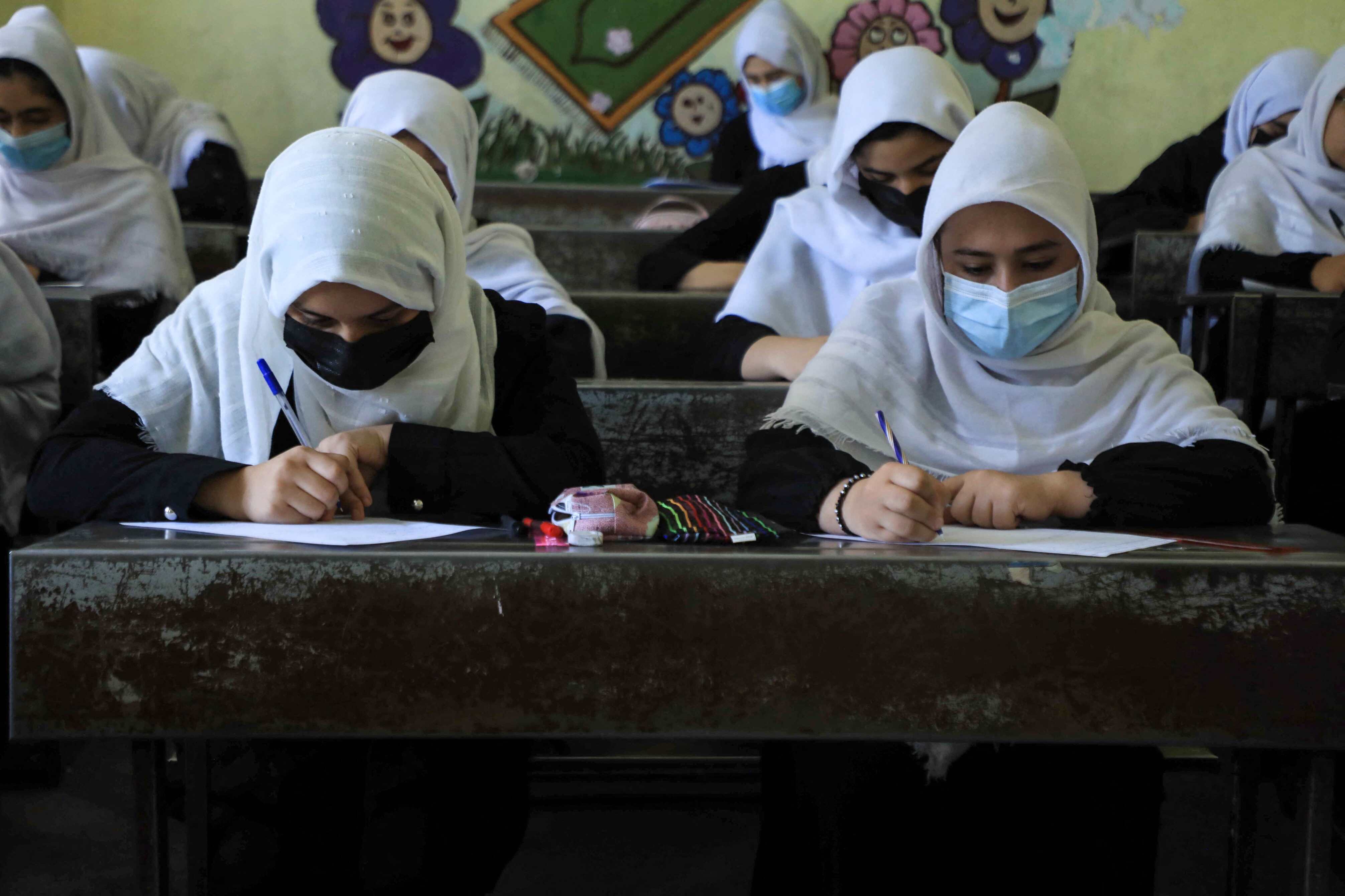An unacceptable regression

All fears came alive and all hopes were dashed as the Taliban, hours after reopening the schools for girls, decided to step back and extend the ban until 'security concerns' are addressed. After seizing power in Afghanistan last year, the Taliban had made a promise that it would allow education of girl students in the country within the limits of Islam — with no clear idea of what the limit was. The promises fell apart and the future of many aspiring Afghan girls is now lurking in the dark. The Taliban has not officially banned girl students from receiving formal secondary education; it is waiting for the 'right time' to allow them to study. But this is no reason to be swept away by optimism. The erstwhile terror outfit had played the same tactics when it controlled Kabul in the latter half of the 1990s — of citing security concerns for postponing the reopening of schools for girl's education. Indeed, preventing girl students from attending secondary education classes will cripple the wings of many girls who show the spark for becoming a future doctor, engineer, educator and whatnot. It is extremely foolish on the part of the Afghanistan government to cut short the potential of its human resources. The more immediate fallout of the extension of ban on girl education, however, is that foreign countries will further cut off Afghanistan financially and abstain from granting humanitarian aid to the country. The West had already made humanitarian aid conditional on the continuance of girls' education. Notably, the Taliban-led Afghanistan government is reeling under an acute humanitarian crisis on almost all fronts. The World Food Programme reported last year that only two per cent of Afghanistan's population had enough food. Hunger is widespread in the country and poverty has been touching greater heights on a persistent basis. The United Nations Development Program (UNDP) had claimed that every citizen of Afghanistan would be living in poverty by mid-2022. Added to this is the extensive scale of forced internal migration that the country has been witnessing since the Taliban assumed power last year. The distressing situation has been arrived at mainly because of the international community pulling its financial support away from Afghanistan — in order to create a deterrent so that the Taliban rule in Afghanistan doesn't become completely unruly. As per a CFR report, "before the Taliban took over, an estimated three-fourths of the Afghan government's expenditures were covered by grants from international partners." In the aftermath of the Taliban coming to power, the Western countries are finding it hard to maintain a balance between addressing the humanitarian crisis in Afghanistan and preventing the Taliban from going awry in its exercise of power. While hunger and poverty need to go from the country, the Western powers also want to maintain a restraining control over the Taliban's actions. In response to the recent decision of the Taliban to keep the schools closed for Afghan girls, the foreign ministers of Britain, Canada, France, Italy, Norway and the US, plus the high representative of the European Union have issued a joint statement condemning the Taliban's decision. The statement urged the Taliban "to reverse this decision, which will have consequences far beyond its harm to Afghan girls." The Western nations were perhaps referring to financial repercussions and acceptance of Taliban in the geopolitical order. The statement added that the Afghanistan government's move "will have an inevitable impact on the Taliban's prospects of gaining political support and legitimacy either at home or abroad." International community does stand a chance to force the Taliban to mend its ways. The Taliban is caught in a difficult situation where it needs financial assistance and international acceptance to move forward with its regime. At the same time, it is also finding itself obliged to align with the core beliefs of its followers. Putting international pressure appears justifiable at this point. It is worth noting that the decision of the Taliban government came at almost the last moment. This indicates the existence of some sort of internal debate / rift within the group. If indeed there are progressive factions within the Taliban, their sentiments need to be taken cognizance of and extrapolated to be made mainstream. On a priority basis, the ailing conditions of people of Afghanistan must not be overlooked.



